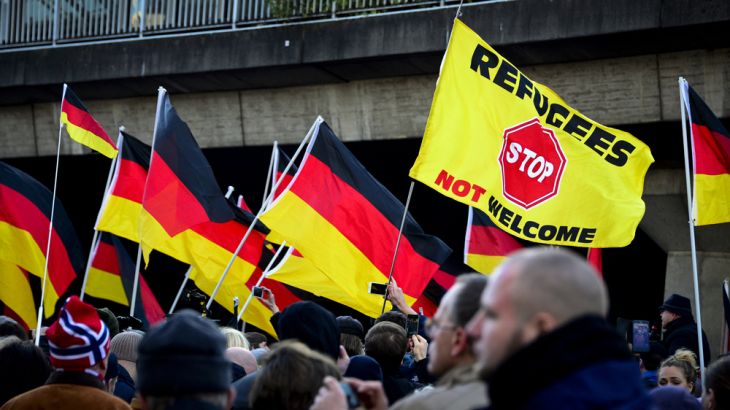
Germany’s Refugee Crisis
After welcoming one million refugees, attitudes across Germany are changing with confrontations and vitriol on the rise.
Last summer Germany opened its arms to more than a million refugees – the vast majority from Syria and Iraq. The move won huge international applause for Chancellor Angela Merkel and seemed to reflect an impressive degree of tolerance among her fellow citizens
But well before the end of the year, the mood had begun to sour. As the influx continued, even some of Merkel’s own supporters began to voice concerns about when it would end and to question exactly how so many people from other cultures were going to be absorbed. Then over the New Year came widely reported allegations of sexual assault on German women by asylum seeker and illegal immigrant men in Cologne and other cities – closely followed by claims that the authorities had failed to prevent the attacks because of “political correctness”.
Keep reading
list of 4 itemsBeyond borders: Migrants online
Tunis police raid sees refugees abandoned near the border with Algeria
‘No turning back’: Carnation Revolution divides Portugal again, 50 years on
Since then deep cracks in Germany’s Wilkommenskultur (welcoming culture) have appeared, and support for extreme right-wing anti-immigration groups such as Pegida and the Eurosceptic Alternative fur Deutschland (AfD) party has gained momentum.
Meanwhile beyond the country’s borders, tension over the refugee crisis is testing the cohesion of the European Union and pushing its free-movement Schengen agreement to the point of collapse.
Some of Germany’s neighbours – a number of which, such as Hungary, have nationalistic governments deeply antagonistic to asylum seekers – are loudly blaming Merkel for encouraging the flow of migrants through their states.
Now the rhetoric within Germany itself is becoming more vitriolic; violent confrontations are on the rise and more moderate voices are being drowned out. As Dutch journalist Koen van Groesen discovered, for some the divisions have begun to evoke worrying themes from the country’s dark past.